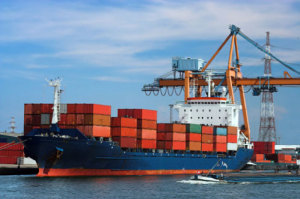There are strong indications that the much touted disbursement of the Cabotage Vessel Financing Fund (CVFF) may not happen anytime soon as the committee set up for the purpose is yet to meet five months after, SHIPS & PORTS has learnt.
Recall that the Minister of Transportation, Rotimi Amaechi, had in January at a meeting with shipowners and other stakeholders, set up a committee to develop guidelines for the disbursement of the fund.
The committee members were drawn from shipowners’ associations with the Director General of the Nigerian Maritime Administration and Safety (Agency) NIMASA as Chairman.
The setting up of the committee was sequel to the announcement by Amaechi that he had secured President Muhammadu Buhari’s approval for the disbursement of the fund to shipowners, which he said had accrued to $200million.
A member of the committee, who craved anonymity, confirmed to SHIPS & PORTS that the committee is yet to meet since it was set up and has not developed guidelines for the disbursement of the fund.
“The former NIMASA Director General has been removed so the responsibility of the Chairman goes to the new DG. We need to know why a meeting has not been called since the committee was set up. As a member of the committee, I cannot go and call a meeting or begin to talk about a committee that has not deliberated. If they are waiting for inauguration everybody is holding meeting on zoom because of COVID-19, why can’t the committee do same?
“A committee is not even a requirement for the disbursement of the CVFF. Everything rests on the Minister. If the Minister wants the committee to advise him, then we can’t tamper with the guidelines because they are already law,” the source said.
Speaking on the development, a former Director-General of NIMASA, Temisan Omatseye, expressed reservation over the disbursement of the fund as he noted that there must be a review of the guidelines and the recommendations to the Minister must be followed through to the National Assembly before any disbursement.
“The CVFF was created by an Act of parliament and the law says it is to be disbursed in line with the guidelines as issued by the Minister of Transport and in additional to that, the guidelines must be approved by the National Assembly. As at the last time I am aware, there was a guideline that was issued in 2003 and that guideline stated specifically how the fund is to be disbursed.
“So until that guideline is changed, I don’t know whether there is going to be any procedure for disbursing because anything that is done to disburse the fund outside the guideline is not in line with the law. I have not seen anything positive that will allow that fund be disbursed in a way that will be satisfactory for everybody. If we have a guideline for 14 years and it is not working, it is obvious something is wrong. So we need to review the guidelines first,” he said.
Omatseye, who came hard on Nigerian shipowners, blame the conflicting interest and disunity among them as a major factor hindering not just the disbursement of the fund but the overall development of indigenous shipping in the country.
The CVFF is a pool of fund contributed by shipowners under the Coastal and Inland Shipping Act 2003, otherwise known as the Cabotage Act, to be borrowed to indigenous operators at single digit interest rate to acquire vessels.
